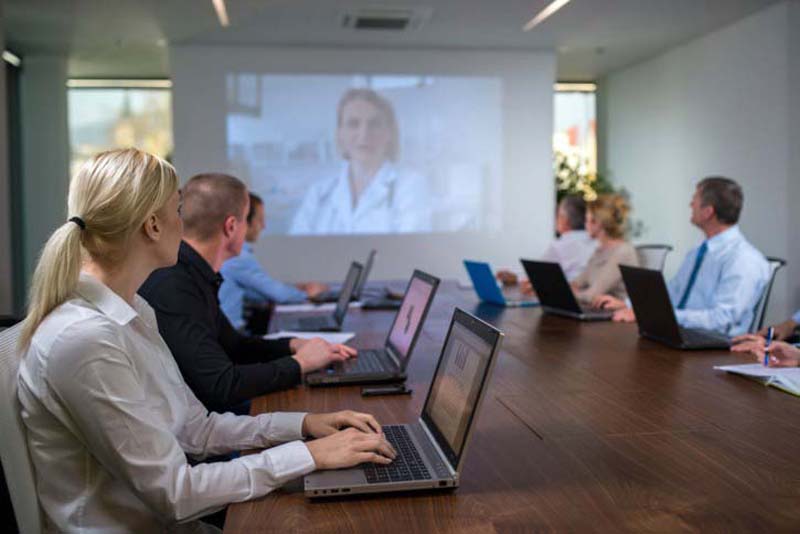
Suppose you could have not one or two, but 20 second opinions. Or 40? Or even 80? And not just from physicians in one specialty but from surgeons, medical oncologists, radiation oncologists and others involved in the care of your type of cancer? That's the benefit offered to patients with rare or complex cancers when their physicians and other ancillary staff members participate in Sarah Cannon's virtual cancer conferences. While medical conferences have been a long established way for physicians to gain up-to-date information on research and treatments, "having a tumor specific conference and using new mediums to ensure physician engagement are both innovative," said Crystal Dugger, Assistant Vice President, Clinical Operations for Sarah Cannon.
Conferences Are Part of a Team Approach
A unique aspect of Sarah Cannon's cancer conferences is that cases can routinely be discussed not just at the facility where patients are receiving care, but also with physicians in the region where that facility is located. To improve communication and collaboration, both the facility-based treatment planning conferences and the expanded regional conferences are open to patients' primary and referring physicians. "We believe treating cancer is a team effort and needs to be coordinated," said Dugger. "Since cancer is such a complex disease, it takes all the specialists involved in that patient's care to work together to develop the optimum strategy for treating that particular cancer. By including primary care and referring physicians, our unique process helps us consider each patient's unique needs as well as keeps everyone Ôin the loop' when it comes to treatment modalities and patient progress."
How Cancer Conferences Work
Facility-based treatment planning conferences in the Sarah Cannon network give physicians and other members of the care team the opportunity to talk about each patient who has been diagnosed with cancer in that disease site, such as breast or lung. Given that cancer treatments can span months or even years, these conferences also provide a forum for physicians to share progress regarding current therapy approaches, discuss potential next steps and determine when patients should move to the next phase of treatment. The conferences usually are held on a weekly basis, and physicians have the option to join in person or via the phone. Patient privacy is strictly protected. While specific cases are discussed, the patient files are de-identified, meaning that while pertinent health and some background information is included that may impact treatment optionsÑfor example, that the patient also is the primary caregiver for an elderly parentÑthe patient's name and other specific personal details not relevant to the case are removed.
Monthly regional conferences conducted via WebEx video conferencing offer physicians a broader perspective on cancer treatments and research by introducing recent journal articles, reviewing the latest best practices and providing the newest evidence-based information. In addition, said Dugger, each facility within that market has the opportunity to have patient cases involving complex or rare cancers discussed. "Sometimes patients may need a specific treatment that isn't available at the facility where they are currently receiving their treatments," she added. "During the regional conferences, the treating physicians can discuss options with colleagues from other locations and devise a plan for the patients to receive that treatment at another facility but then return home for the remainder of the therapies. We have expanded this approach, even having special international conferences that tap into the expertise of our physicians in London."
Keeping Patients in the Loop
A key member of both conference teams is the nurse navigator, who is the one who leads the process and makes recommendations for bringing a specific case to a facility or market conference. "Our focus is on the entire patient not just the cancer," said Dugger. "Sarah Cannon nurse navigators are the advocate for the patient, working in collaboration with the physicians to improve the quality of the case presentation and communication after the patient case is presented." Sarah Cannon's virtual conferences are all about bringing the most advanced therapies close to home, said Dugger. "When patients leave their home base, significant barriers arise. They lose their support group, their costs increase, they may need to take time off from work or their personal responsibilities. With these conferences, they are receiving the benefit of having a 'home-based team' that is as educated, advanced and innovative as any of the major cancer facilities across the country."